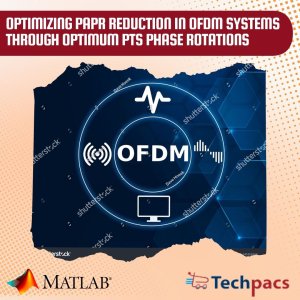Home Energy Optimization Through Weather-Aware Scheduling Using Whale Optimization Algorithm
Problem Definition
From the literature review, it is evident that existing techniques for load demand reduction and electricity bill management have several limitations. These traditional methods often struggle with local optima and have a slow convergence rate, making them cumbersome for users. The lack of preference elements in these models hinders the prioritization of devices for changing needs, leading to inefficient energy consumption. Moreover, the traditional approaches overlook the impact of changing weather conditions on load management, resulting in suboptimal distribution of electricity among various electrical equipment. As a result, there is a clear need for a new approach that can effectively address these challenges and optimize load reduction under different weather conditions.
By developing a more efficient and weather-aware system for home management, it is possible to enhance overall performance and reduce energy consumption in a smarter and more sustainable manner.
Objective
The objective of the project is to optimize home energy consumption by integrating Particle Swarm Optimization (PSO) and Whale Optimization Algorithm (WOA) into the existing home appliance management system. This will help effectively manage loads under varying weather conditions, prioritize devices based on changing factors, minimize costs, and optimize energy consumption in a smarter and more sustainable manner.
Proposed Work
From the literature review conducted, it was found that current techniques for managing home energy consumption are not efficient in reducing load demand and electricity bills. Traditional methods often face challenges such as being stuck in local optima, slow convergence rates, and lacking the ability to prioritize devices based on changing factors. This highlights the need for a new approach that can effectively manage loads under varying weather conditions. The objective of this project is to utilize Particle Swarm Optimization (PSO) and Whale Optimization Algorithm (WOA) to optimize home energy consumption by integrating an electric vehicle charging module into the existing home appliance management system.
The proposed work will implement the WOA algorithm to schedule loads in a manner that minimizes costs and effectively manages various electrical home appliances.
The WOA algorithm was chosen for its high convergence rate and ability to effectively solve the scheduling issues for home appliances. Additionally, the model will take into account changing weather conditions, which play a crucial role in determining the utilization of different electrical appliances. By considering these factors, the proposed approach aims to optimize energy consumption in homes while also taking into consideration the impact of weather on load management.
Application Area for Industry
This project can be beneficial in various industrial sectors such as residential, commercial, and industrial buildings where energy management is crucial. By implementing the proposed solutions, industries can effectively reduce their load demand, optimize electricity consumption, and lower electricity bills. The novel approach based on the Whale Optimization Algorithm addresses the challenges faced by traditional techniques such as slow convergence rates and inability to prioritize devices for optimal energy usage. By considering changing weather conditions in load management, the proposed model ensures efficient distribution of electricity among different electrical equipment, ultimately enhancing overall performance and reducing energy wastage. Industries can benefit from improved energy efficiency, cost savings, and better resource allocation by adopting this innovative approach in their operations.
Application Area for Academics
The proposed project can significantly enrich academic research, education, and training in the field of electrical engineering. By focusing on optimizing the scheduling of home appliances under varying weather conditions, the project addresses a critical need for more efficient and effective load management techniques.
The use of the Whale Optimization Algorithm (WOA) for scheduling loads demonstrates a novel approach that can potentially outperform traditional techniques in terms of convergence rate and overall performance. This can open up new avenues for research in optimization algorithms and their application in real-world scenarios.
The project's relevance lies in its potential applications in innovative research methods, simulations, and data analysis within educational settings.
Researchers, MTech students, and PhD scholars in the field of electrical engineering can leverage the code and literature of this project for their own work, gaining insights into the implementation of WOA and its effectiveness in load scheduling.
Furthermore, by considering weather conditions in load management, the project adds a layer of complexity and realism to home management systems. This aspect can lead to advancements in energy efficiency and distribution strategies, making it a valuable contribution to the field.
Looking ahead, the project offers a promising future scope for further research and development. Future studies could explore the integration of additional algorithms, expansion to larger-scale applications, or adaptation for specific industry needs.
Overall, the project's focus on optimizing load scheduling under changing weather conditions has the potential to drive innovation and progress in the field of electrical engineering.
Algorithms Used
The proposed approach in the project involves utilizing the Whale Optimization Algorithm (WOA) for scheduling loads of different electrical home appliances with minimum cost utilization. WOA algorithm is chosen for its high convergence rate and effectiveness in solving the scheduling issue for home appliances. The model also takes into consideration the impact of varying weather conditions on the usage of different electrical equipment, allowing for efficient scheduling of appliances based on weather patterns.
Keywords
SEO-optimized keywords: Home Energy Consumption, Electrical Vehicle Charging, Appliance Management System, Energy Management, Optimization Algorithms, Smart Grid, Demand Response, Energy Efficiency, Renewable Energy, Home Automation, Energy Consumption Control, Load Balancing, Energy Scheduling, Hybrid Energy System, Power Electronics, Whale Optimization Algorithm, WOA, Particle Swarm Optimization, PSO, Weather Condition Based Scheduling, Energy Efficiency in Home Appliances.
SEO Tags
Particle Swarm Optimization, PSO, Whale Optimization Algorithm, WOA, Home Energy Consumption, Electrical Vehicle Charging, Appliance Management System, Energy Management, Optimization Algorithms, Smart Grid, Demand Response, Energy Efficiency, Renewable Energy, Home Automation, Energy Consumption Control, Load Balancing, Energy Scheduling, Hybrid Energy System, Power Electronics, Weather Conditions, Convergence Rate, Load Demand Reduction, Electricity Bills, Device Prioritizing, Load Management, Traditional Techniques, Novel Approach, Weather-Aware Scheduling, Electrical Equipment Usage, Home Appliance Optimization, Literature Review, Research Proposal, PhD Research, MTech Project, Research Scholar, Scheduling Algorithms.
| Shipping Cost |
|
No reviews found!

















































No comments found for this product. Be the first to comment!